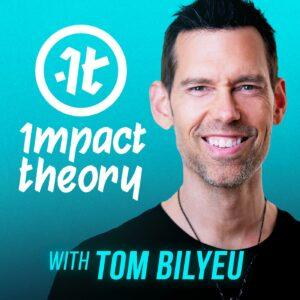Intro
In this episode of the Huberman Lab podcast, Dr. Andrew Huberman discusses eye health, the importance of viewing things at a distance, and strategies to increase motivation. He also shares insights on the role of vitamin A and lutein in maintaining eye health, the benefits of behavioral tools and exercises for vision improvement, and the use of red light therapy to offset age-related vision loss. The episode also highlights the Huberman Lab Premium channel, which supports research on human beings for mental health, physical health, and performance.
Main Takeaways
Eye Health and Vision Improvement
- To maintain or improve vision, it’s important to view things at a distance for several hours per day, not just at close range.
- The incidents of myopia or near-sightedness are increasing dramatically worldwide, especially in children and young adults who spend excessive time viewing things at close range.
- Estimate the amount of time spent viewing things at close range versus at a distance during your daily activities.
- Balancing near and far vision throughout the day is crucial for eye health.
- Getting at least an hour of long viewing each day, such as walking outside and avoiding phone use, can help prevent myopia.
- Spending time outdoors for two hours or more can potentially reverse some myopia in young people.
- Intrinsically photosensitive ganglion cells in the eye play a role in blood flow, visual acuity, and overall eye health.
- Smooth pursuit tasks, like tracking a small dot or crosshatch smoothly, can improve vision and maintain the ability to do smooth pursuit.
- Microsaccades, small eye movements, are important for maintaining visual perceptions and responding to changes in the environment.
- Eye exercises can help offset visual impairment, especially for those with mild vision issues.
Vitamin A and Lutein for Eye Health
- Vitamin A is crucial for the photo-transduction cascade, which converts light energy into electrical signals for vision.
- A healthy diet with sufficient vitamin A from sources like dark green leafy vegetables and liver is recommended for eye health.
- Lutein, found in eggs and certain fruits, may help with age-related macular degeneration.
- Supplementation with lutein, zeaxanthin, or astaxanthin can be beneficial for slowing the progression of age-related macular degeneration.
- Discuss with your eye specialist whether exercises can be done to overcome vision issues without the need for a prism lens.
Red Light Therapy for Vision Improvement
- Red light therapy in the 650 to 720 nanometer range can offset age-related vision loss and improve visual acuity.
- Red light exposure should be done early in the day for optimal results.
- Behavioral tools like near-far smooth pursuit, lutein nutrition, vitamin A, and red light therapy can improve vision regardless of age.
Huberman Lab Premium Channel
- The Huberman Lab Premium channel supports research on human beings for mental health, physical health, and performance.
- For every dollar generated by the Premium channel, the Tiny Foundation matches that amount to support research studies.
- The Premium channel offers exclusive content, including transcripts of AMAs and Huberman Lab podcast episodes.
- Listeners can ask questions about the future of the Amazon and get answers on the Premium channel.
- To sign up for the Premium channel, visit HubermanLab.com/premium.
Summary
Eye Health and Vision Improvement
Proper eye health and vision improvement require a balance between viewing things at close range and at a distance. Excessive close-range viewing, especially during development, can lead to myopia or near-sightedness. Spending time outdoors, engaging in smooth pursuit tasks, and maintaining musculature around the eyes are essential for maintaining good vision. Behavioral tools and exercises can offset visual impairment, and it’s important to consult with an eye specialist for personalized guidance.
Vitamin A and Lutein for Eye Health
Vitamin A plays a crucial role in the photo-transduction cascade for vision, and a healthy diet rich in vitamin A sources is recommended. Lutein, found in certain foods, may help with age-related macular degeneration. Supplementation with lutein, zeaxanthin, or astaxanthin can slow the progression of this condition. However, it’s important to consult with a healthcare professional before starting any supplementation regimen.
Red Light Therapy for Vision Improvement
Red light therapy in the specific wavelength range can offset age-related vision loss and improve visual acuity. Early-day exposure to red light is recommended for optimal results. Combining red light therapy with other behavioral tools and nutritional strategies can enhance overall vision regardless of age.
Huberman Lab Premium Channel
The Huberman Lab Premium channel supports research on human beings for mental health, physical health, and performance. Through the channel, listeners can access exclusive content, including transcripts of AMAs and podcast episodes. The Tiny Foundation matches every dollar generated by the Premium channel to further support research studies. To join the Premium channel and get answers to questions, visit HubermanLab.com/premium.
Conclusion
Dr. Huberman’s AMA episode on eye health, increasing motivation, and the benefits of the Huberman Lab Premium channel provides valuable insights for maintaining and improving vision. By incorporating strategies like balancing near and far vision, consuming vitamin A-rich foods, considering lutein supplementation under professional guidance, and exploring red light therapy, listeners can take proactive steps towards better eye health and overall well-being.
